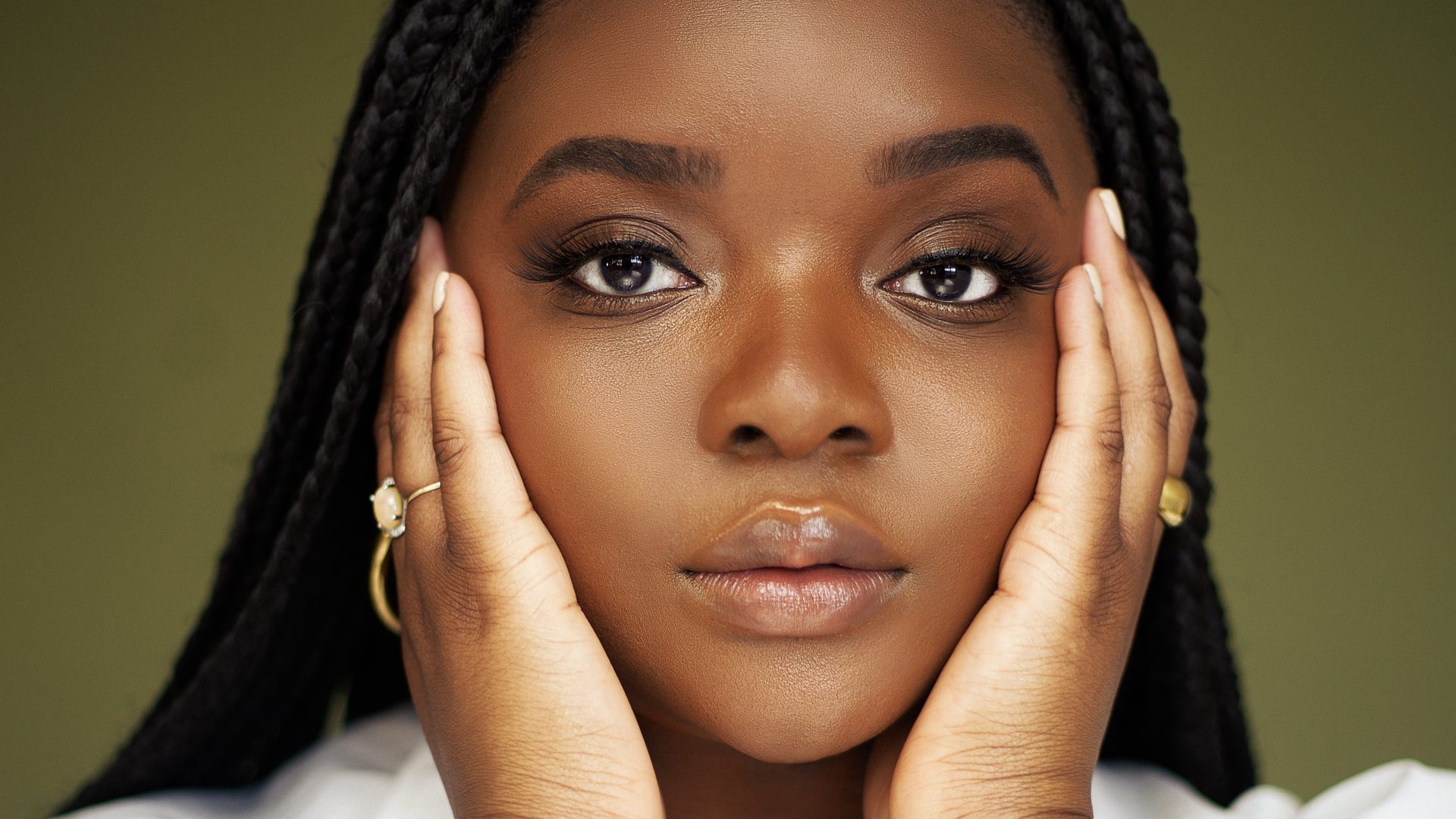
Priscilla Agyeman is spreading awareness about mental health through her podcast “The Soft Life with Saddie Baddies” one episode at a time.
Though Agyeman’s mental health advocacy work officially began during her pursuit of a Master’s in Public Health, she was raised to always keep community in mind. Growing up West African and seeing her family take care of others in need emphasized the idea that Agyeman would always be a part of a bigger collective. Naturally, a healthy collective results in healthy personhood.
“There is no self-care without community care,” Agyeman tells Essence GU. “You need self-care to be a part of community care but you also need community care in order to practice self-care.”
Listening in on the sisterhood and camaraderie Agyeman saw in her mother’s New Jersey hair salon showed her that mental health doesn’t have a look or aesthetic. In fact, therapy in the form of venting only became taboo when society decided to stigmatize or label it. As Agyeman got older, she realized that sometimes people with high-functioning anxiety or depression—conditions where individuals appear to function well outwardly but struggle internally—don’t show signs of poor mental health until it’s too late.
Her podcast, “The Soft Life with Saddie Baddies,” aims to destigmatize mental health and explore the everyday factors that impact it. When Agyeman started “The Soft Life,” she was trying to solve her own internal struggles externally, digitally, and through community. Agyeman told Essence GU that she wasn’t exactly sure what “wellness” was, but her search for content relatable to her problems led to the creation of “The Soft Life.”
Agyeman’s brand also offers resources for those who don’t know where to start in their self-care journey. “My Journey To Self Love” was published for individuals searching for guidance about self-care, wellness, and anything in between.
According to Agyeman, signs a person may be experiencing poor mental health could include (but are not limited to) missing days or weeks of work, poor appetite, and a lack of motivation or energy to exercise. Agyeman believes it’s also important to be checked by a doctor, as these symptoms can indicate trouble with a person’s mind, body, or soul. If left unchecked, healing will become paramount.
“You’re going to push yourself into a very dark place if you don’t learn how to prioritize yourself. Self-care is not selfish,” Agyeman says.
Agyeman found herself in a dark place during her first year of graduate school in 2017. After moving back to New York City, Agyeman realized her graduate experience would be vastly different from undergraduate because her social ecosystem was gone, leaving her lonely. Though her friends became concerned, Agyeman coped with her poor mental health by isolating because she felt ashamed and embarrassed.
“I was also just going through the growing pains of being an early 20-something and then I really started to struggle,” Agyeman tells Essence GU.
After a month-long depressive episode and deep isolation, Agyeman found the courage to seek help by speaking with a psychiatrist through her school’s student assistance program. Continuing therapy led her down a path of practicing emotion regulation, cognitive behavioral therapy (CBT)—a treatment that helps people identify and change negative thought patterns—as well as somatic therapy, which focuses on the connection between mind and body. Agyeman also made space for her feelings by engaging in cultural wellness practices such as re-reading Ashanti literature.
Agyeman believes a person knows when they’re not okay, and while healing can be communal, it will always be a personal responsibility. Prioritizing self is just as, if not more, important than prioritizing others. More often than not, those with people-pleasing tendencies focus excessive amounts of energy on making sure the people around them are good while neglecting themselves.
“If you can spend all this time and energy making sure the people around you are good, why would you put yourself on the back burner?” Agyeman says.
Self-care does not always have to be a grand gesture. Normalizing self-care means finding ways to appreciate the mundane everyday activities that bring joy. Some of Agyeman’s favorite forms of self-care are making matcha daily, junk journaling, and creative exercises like coloring.
The link between creativity and mental health is undeniable. For many 20-something multihyphenate creatives, bringing ideas to life can be messy both mentally and financially. There can be a disconnect between how to manage mental health while maintaining their creative spark, whether it be due to lack of resources, time, or support. However, being creative is more than being a content creator or influencer.
Agyeman believes people should look at their creativity as a gift, and managing that gift looks like knowing the difference between anxiety and intuition. After battling her own self-doubt, Agyeman knows the difference firsthand and urges other creatives to hone in on their creative gifts so they don’t miss their calling.
“I think when you ignore those little signs and serendipitous moments that happen in your life, you’re missing out on messages that are going to push you forward,” Agyeman says.
Her healing journey coupled with the desire to generate collective healing through her podcast, tools, and events has allowed her to stand in her purpose. The preconceived notion that a person has to struggle as a ‘tortured artist’ or ‘starving artist’ to create healing art is draining and untrue.
However, using creative energy to build a community of healing is no easy feat. The biggest lesson Agyeman says she’s learned on her journey creating “The Soft Life with Saddie Baddies” is to ask for help. This principle rings true for anyone, whether they’re a creative or not, because leaning on your community provides support and rest whenever necessary.
“I don’t see rest as a reward. It’s our birthright, and softness isn’t just about luxury or aesthetics–– it’s about practicing self-compassion, empathy, and choosing the path of least resistance whenever possible,” Agyeman says.